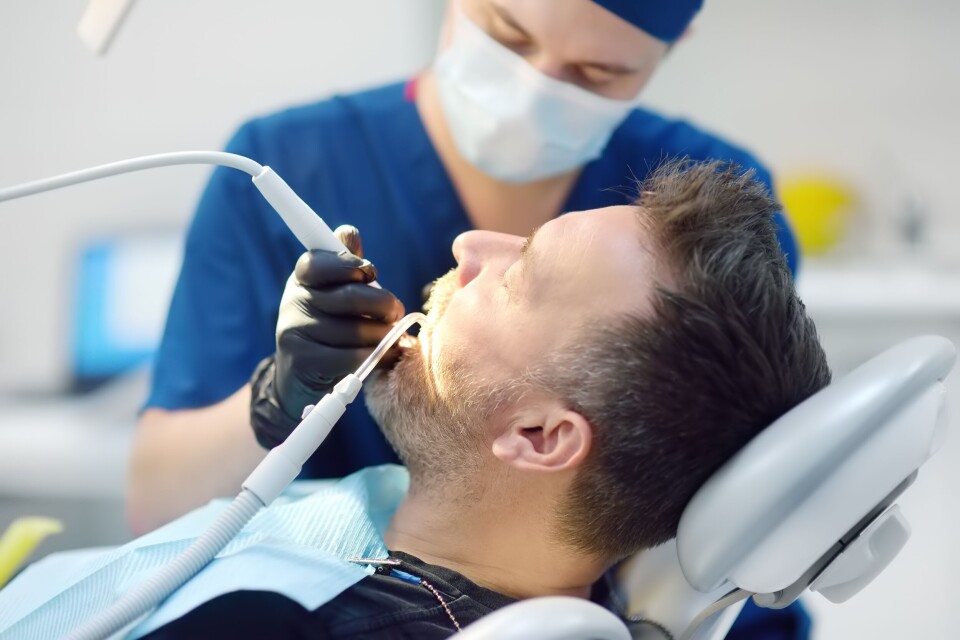-
Mysterious boom rattles residents in south-west France
Local community turns to social media for answers
-
France tightens reimbursement rules for flight delays or cancellations
New measures include mandatory mediation and new claim procedures
-
What snow conditions look like for skiers across French Alps and Pyrenees
Ski resorts are expected to get busier as school holidays begin this weekend
French state to reduce the amount it contributes to your dental bills
Private health insurers are set to pick up the shortfall

France’s social security fund Assurance Maladie will directly refund less dental treatment in a bid to cut €500 million a year from its budget.
Its share of dental bills will drop from the standard 70% to 60% from October 1.
For people with top-up health insurance, it means their insurer will now cover 40% of treatment, up from 30%.
Those providing this insurance, however, will likely pass on this extra cost to customers in the form of higher premiums, said Marie-Laure Dreyfuss, General Delegate of the Centre Technique des Institutions de Prévoyance (CTIP).
They are already set to invest half a billion euros in dental prevention measures.
Now they will face spending the same amount again to cover the shortfall in contributions from Assurance Maladie.
A number of negotiations between France’s social security system and healthcare providers, including dentists, are ongoing, with some deals expected to be fleshed out in July.
Recent agreements include the additional €1.50 cost to see a doctor in France (that will see doctor’s appointments cost €26.50 from November 1, 2023), which some estimates believe will cost Assurance Maladie an extra €700 million per year.
Anger at changes
France’s public health insurance agency, Assurance Maladie, has faced a backlash over the changes, particularly from complementary healthcare providers.
The government set up a "dialogue committee" with insurance companies at the beginning of the year to prepare for the switch, initially estimating a €300 million cost for insurers, said Eric Chenut, President of Mutualité Française, the national representative body for healthcare insurers.
But he said the subsequent changes are “incomprehensible” and the final package “not up to the challenge”.
The new system is “technocratic… [it] won't make it possible to support the transformation of the healthcare system, or to respond to the shift towards prevention,” he said, before adding he is seeking a meeting with Health Minister François Braun over the changes.
Further anger was levelled at the government by Ms Dreyfuss of the CTIP, who said the changes were nothing more than an “accounting measure”.
The new system brings “no added value in terms of the overall level of care and reimbursement provided to policyholders,” she added.
Read more: ‘Prevention will ease healthcare crisis in France’, says minister
Healthcare costs will rise
One change that will be noticeable is the effect on healthcare prices.
Although those with top-up health insurance – either through their workplace, pension, or top-up healthcare offered by the government – will still be fully covered, the brunt of the costs will be put back on health insurance customers next year after the October implementation.
It is unclear yet how much premiums will be affected by the changes, but with health insurance companies also facing an additional €100 million in annual costs from November onwards – due to price changes for doctor’s appointments – the increases are expected to be significant.
A number of negotiations
Insurance bills could rise even further, however, with negotiations between Assurance Maladie and a number of healthcare professionals still ongoing.
Discussions with midwives have almost reached completion, and “lightning” discussions with nurses and paramedics have recently begun.
If Assurance Maladie increases pay or concessions towards these groups, it may seek to further reduce how much it directly covers some healthcare costs, ultimately passing the cost of health coverage onto insurance companies – and their customers.
Related articles
Invisible ‘smart tooth’ monitors chronic disease, says French dentist
























